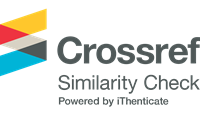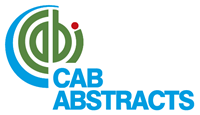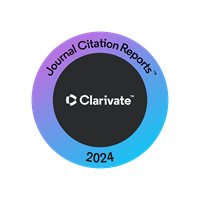Insects associated to the different species of passionflower (Passiflora spp.)
Abstract
This research was carried out to study the frequency, foraging type (nectar and/or pollen) time, and behavior of insects on different species of passionflower (Passiflora edulis Sims flavicarpa flavicarpa Deg., P. giberti N. E. Brown, and P. nitida HBK) (Passifloraceae). It was also observed the size, color, and duration of the flowers. The main insects visitors were Xylocopa suspecta, Trigona spinipes, and X. griscenses, respectively, in three species of passionflower. The Passiflora nitida (72.4%) and P. edulis f. flavicarpa (43.6%) attracted more Xylocopa spp. and P. giberti more Trigona spinipes. These bees collected nectar mainly, only Trigona bee was observed collecting pollen. Xylocopa bees collected in species with larger flowers (P. edulis flavicarpa flavicarpa Deg. and P. nitida HBK) and Trigona in smaller flowers (P. giberti N. E. Brown). In P. edulis f. flavicarpa the fruit production was 53.85% with Xylocopa bees and there was no fruit production in flowers not visited by insectsDownloads
Download data is not yet available.
Published
2008-04-30
How to Cite
Malerbo-Souza, D. T., Nogueira-Couto, R. H., & Arnaut de Toledo, V. de A. (2008). Insects associated to the different species of passionflower (Passiflora spp.). Acta Scientiarum. Agronomy, 24, 1269-1274. https://doi.org/10.4025/actasciagron.v24i0.2280
Issue
Section
Agronomy
DECLARATION OF ORIGINALITY AND COPYRIGHTS
I Declare that current article is original and has not been submitted for publication, in part or in whole, to any other national or international journal.
The copyrights belong exclusively to the authors. Published content is licensed under Creative Commons Attribution 4.0 (CC BY 4.0) guidelines, which allows sharing (copy and distribution of the material in any medium or format) and adaptation (remix, transform, and build upon the material) for any purpose, even commercially, under the terms of attribution.
2.0
2019CiteScore
60th percentile
Powered by 

2.0
2019CiteScore
60th percentile
Powered by 



















































